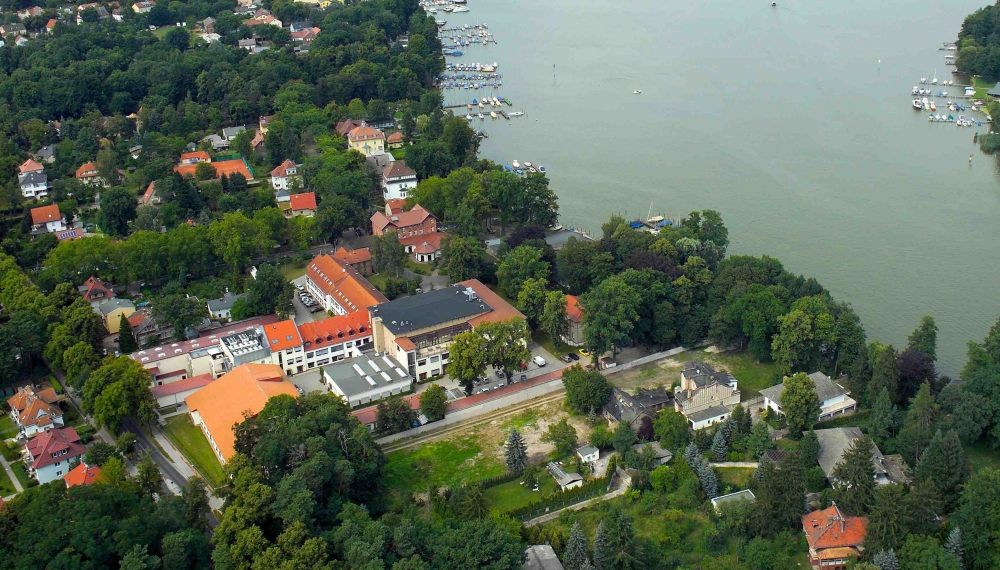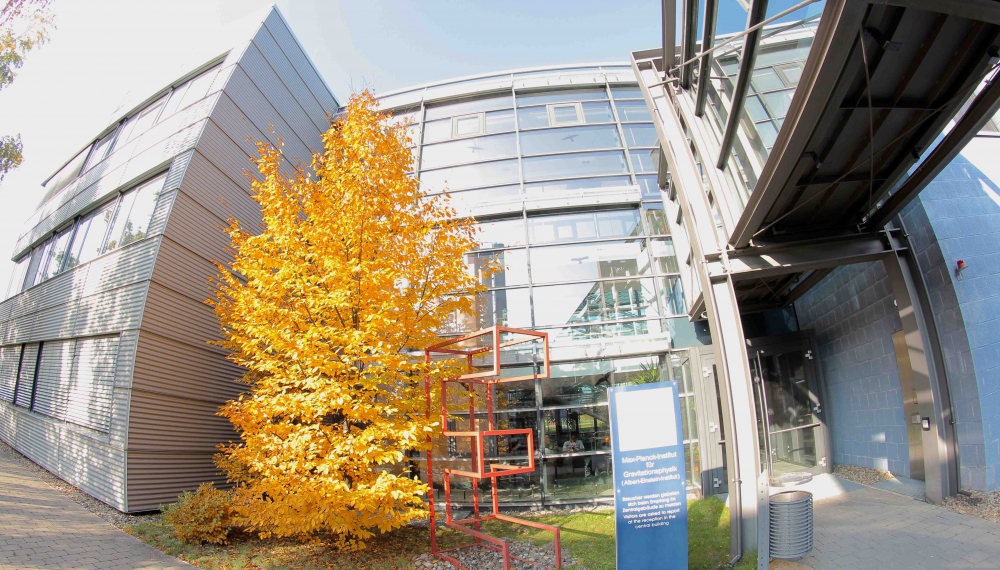Doing a doctorate in the network
As a doctoral candidate, you have the opportunity to conduct your research at the University of Potsdam, at the Leibniz Institute for Astrophysics Potsdam (AIP), the Deutsches Elektronen-Synchrotron (DESY) or the Max Planck Institute for Gravitational Physics (Albert Einstein Institute, AEI).
Topics for a doctoral thesis are agreed upon and planned individually with potential supervisors at the institutions. Please refer to the network institutions’ websites for details. Subject-specific Graduate Schools enable doctoral studies within a thematic network with a suitable curriculum. This also promotes enhanced exchange with fellow doctoral candidates involved in similar projects. At AIP and the University of Potsdam, doctorates can be pursued individually or at a Leibniz Graduate School; at AEI, all doctoral students are part of the Max Planck graduate programs (International Max Planck Research Schools).
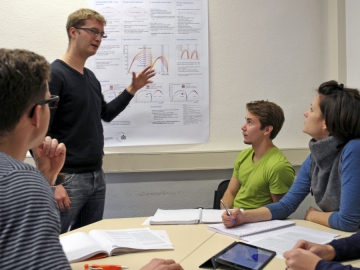
Structured doctoral training
In Germany, only universities have the authority to grant doctoral degrees: for this reason, you will remain enrolled at the university throughout your doctorate. After completing the doctoral examination procedure, the University of Potsdam’s Faculty of Science will award the Doctor of Science degree (Dr. rer. nat.). If you decide to write your doctoral thesis at AIP, for example, your supervisor from AIP will assess your work and be a member of the examining committee.
The non-university institutions in the Astrophysics Network and the University of Potsdam have agreed to offer structured doctoral training. This agreement regulates the rights and obligations of the supervisors and doctoral candidates, ensuring ideal conditions for doctoral studies. In addition, the network offers joint events that are open to all doctoral candidates. Special professional courses and training programs are also offered in the form of transferable and professional skills, delivered in collaboration with the University of Potsdam’s interdisciplinary Potsdam Graduate School.

Leibniz Graduate School for Quantitative Spectroscopy in Astrophysics
The Leibniz Graduate School for Quantitative Spectroscopy in Astrophysics is a collaborative program offered by AIP and the University of Potsdam’s Institute of Physics and Astronomy. Projects can be chosen from a wide range of topics: from solar and planetary physics, stellar physics and extragalactic astrophysics to cosmology. What all these topics have in common is that they involve applying spectroscopic methods.
At the Graduate School, doctoral candidates are supervised collectively by the university and AIP. It also offers joint colloquia and courses in which professional knowledge is taught. These offerings are open to all doctoral candidates studying astrophysics, enabling them to engage in lively exchange beyond their individual research group.
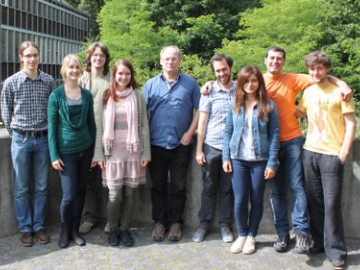
International Max Planck Research Schools
International Max Planck Research Schools (IMPRS) are offered by Max Planck Institutes in cooperation with partner universities. There are two such doctoral programs at AEI. The “IMPRS on Gravitational-Wave Astronomy” with branches in Potsdam and Hannover focuses on gravitational-wave research. Its branch in Potsdam is dedicated to analytical and numerical relativity, data analysis, astrophysics of compact objects, and multi-messenger astronomy while its branch in Hannover investigates experimental and observational aspects of gravitational-wave astronomy. Both branches participate in the analysis of gravitational-wave detector data of the LIGO and Virgo detectors.
The “IMPRS for Mathematical and Physical Aspects of Gravitation, Cosmology and Quantum Field Theory” addresses fundamental questions about the nature of classical and quantum gravity and its links to the fundamental constituents of matter. The purely theoretical research brings together some of the most exciting challenges of modern physics and mathematics.
You are also welcome to attend lectures at nearby universities and take advantage of a specialized IMPRS curriculum and continuing education courses. It usually takes three years to complete a doctorate at the IMPRS. The working language is typically English.
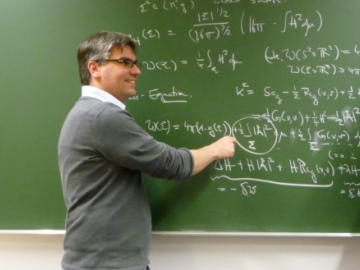
Doctoral theses at DESY
Demanding doctoral projects in an international environment are offered at DESY. At the Zeuthen site, you can complete your dissertation on astrophysical issues from the research area of astroparticle physics. Astroparticle physics unites issues and methods from astrophysics, cosmology, particle physics, and observations of fundamental processes in the universe.
At DESY, doctoral projects are available in a variety of experimental research projects concerning neutrino and gamma astronomy, or in theoretical astroparticle physics. As a doctoral student, you will be closely integrated in research groups at Zeuthen and the participating universities (University of Potsdam and Humboldt-Universität zu Berlin).
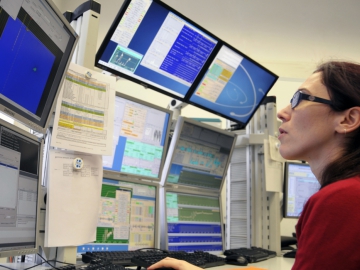
Potsdam Graduate School
Potsdam Graduate School (PoGS) is a central scientific facility at the University of Potsdam. It acts as the central contact point and supporting organization for doctoral candidates and postdocs from all faculties. Potsdam Graduate School brings together individual doctoral candidates, and connects the structured graduate programs of the University of Potsdam and the non-university institutions.
It offers a wide range of services: funding opportunities such as publishing and travel allowances, proof reading, as well as multidisciplinary courses and PhD coaching.
A comprehensive continuing education program is also open to all doctoral candidates, preparing them not only for university teaching, but also for professions outside higher education. Potsdam Graduate School also organizes numerous networking events, such as Career Talks, a Science Club and PhDay.
There are currently over one thousand doctoral candidates from all kinds of subject areas at Potsdam Graduate School.



